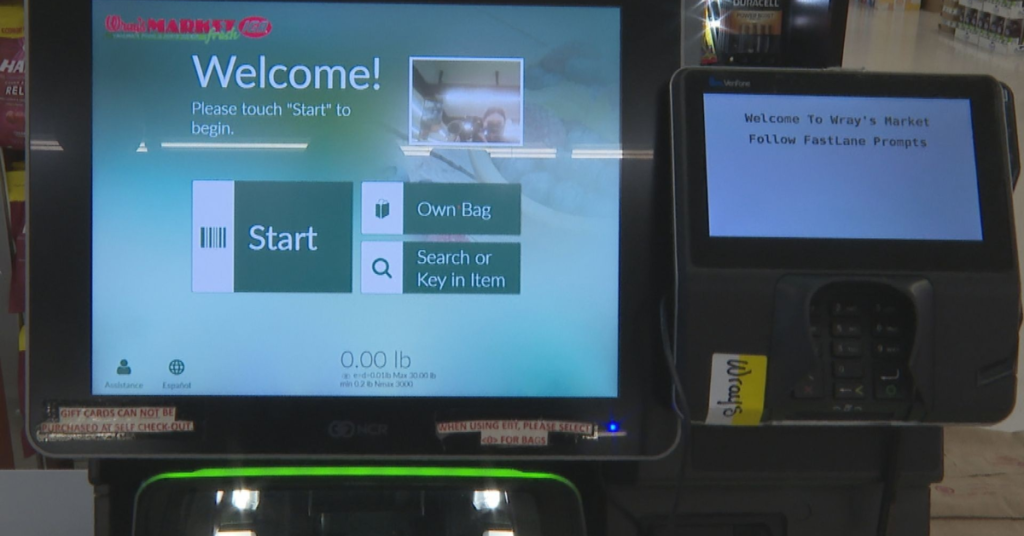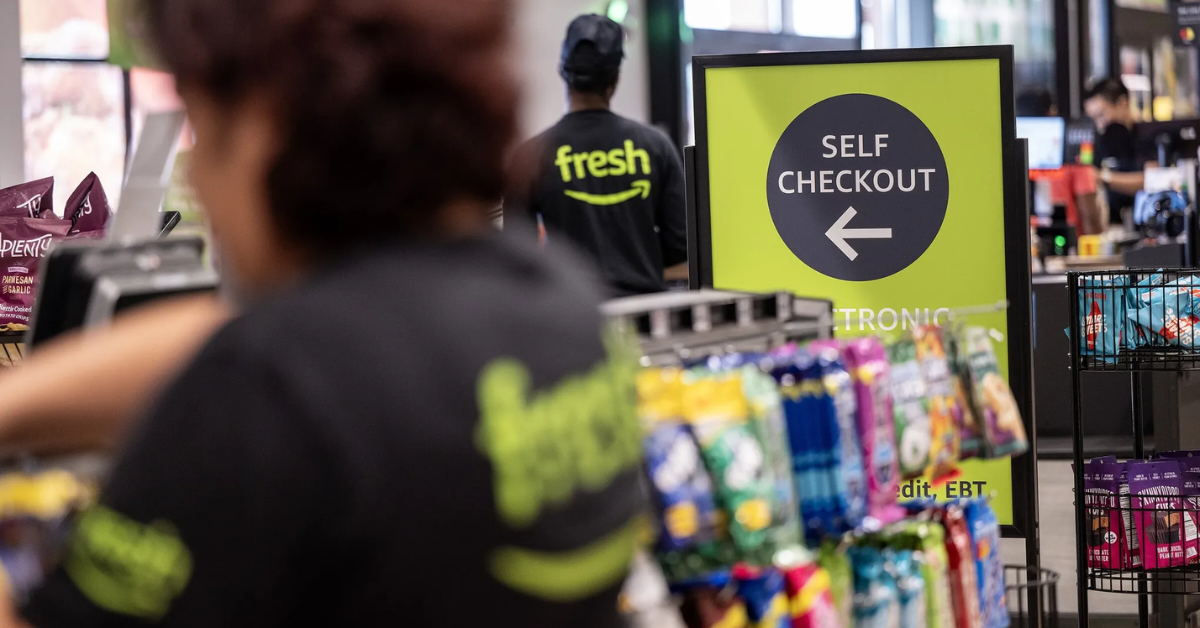In response to growing concerns over automation and its impact on employment and customer service, Washington State lawmakers have introduced House Bill 1739. This legislation aims to regulate the use of self-service checkout stations in large grocery stores, ensuring a balance between technological convenience and the well-being of both employees and customers.
Key Provisions of House Bill 1739
The proposed bill, sponsored by Representative Mary Fosse (D-Everett), outlines specific requirements for grocery stores exceeding 15,000 square feet that offer self-checkout options:
- Mandatory Operation of Manual Checkout Lanes: At least one traditional, employee-operated checkout lane must be open whenever self-service stations are available.
- Item Limitations at Self-Checkout: Customers using self-checkout stations are restricted to 15 items or fewer. Clear signage must be displayed to inform shoppers of this limit.
- Dedicated Monitoring by Employees: Employees assigned to oversee self-checkout areas are to focus solely on this task, monitoring no more than two stations simultaneously without additional responsibilities.
These regulations would not apply to bulk goods retailers requiring memberships, such as Costco and Sam’s Club. The Washington State Department of Labor and Industries is designated to enforce these rules, with non-compliant businesses facing civil penalties of $100 per day, up to a maximum of $10,000.
Addressing Worker Concerns
The introduction of self-checkout systems has led to challenges for grocery store employees, including increased workloads and safety issues. During a House Committee on Labor and Workforce Standards hearing, workers shared their experiences.
James Reed, a grocery employee, testified about managing multiple machines alone and facing customer aggression. He recounted an incident where a customer threw a steak at him due to a promotional misunderstanding.
Another employee, Amy Daley Angell, expressed concerns about handling retail theft without adequate support, describing the situation as “terrifying.” These testimonies highlight the pressing need for regulations that protect workers in an increasingly automated retail environment.
Industry Response and Opposition
While the bill aims to safeguard employees, some industry representatives argue that the proposed regulations could hinder operational flexibility. Brandon Houskeeper of the Northwest Grocery Retail Association described the legislation as a “prescriptive mandate” that might limit retailers’ ability to adapt to varying staffing and customer demands.

Opponents suggest that retailers are better positioned to manage their self-checkout systems and that alternative policies could more effectively address issues like theft and employee safety without imposing stringent operational constraints.
Current Status and Next Steps
As of February 19, 2025, House Bill 1739 is under consideration by the House Labor & Workplace Standards Committee. The bill has undergone public hearings, where stakeholders from various sectors have voiced their perspectives. The committee has yet to schedule a vote to move the bill forward in the legislative process.
Implications for Shoppers and Retailers
If enacted, the legislation would directly impact shopping experiences in large grocery stores across Washington State. Shoppers accustomed to using self-checkout for larger purchases would need to adjust to the 15-item limit, potentially leading to wait times at traditional checkout lanes longer. Retailers might face increased staffing requirements to comply with the mandate of having at least one manual checkout open during all operating hours of self-checkout stations.
The bill also emphasizes the importance of employee well-being in the face of automation. By limiting the number of self-checkout stations an employee can monitor and ensuring they have no additional duties, the legislation seeks to reduce workplace stress and improve oversight, potentially leading to a decrease in theft and machine malfunctions.
A Broader Conversation on Automation
The debate surrounding House Bill 1739 reflects a larger national conversation about the role of automation in the workforce. As technology continues to evolve, industries are grappling with how to integrate automated systems without compromising employment opportunities and customer service quality.
Proponents of the bill argue that thoughtful regulation is necessary to prevent unchecked automation from eroding job markets and overburdening remaining staff. Critics, however, caution that overly restrictive measures could stifle innovation and limit the efficiency gains that automation offers.
The outcome of House Bill 1739 will likely influence future legislative efforts both within Washington State and beyond. As lawmakers, industry leaders, employees, and consumers continue to navigate the complexities of automation, finding a balanced approach that addresses the needs of all stakeholders remains a critical challenge.
For those interested in following the progress of this legislation or participating in the discussion, additional information and updates are available through the Washington State Legislature’s official website.
Disclaimer: This article has been meticulously fact-checked by our team to ensure accuracy and uphold transparency. We strive to deliver trustworthy and dependable content to our readers.








